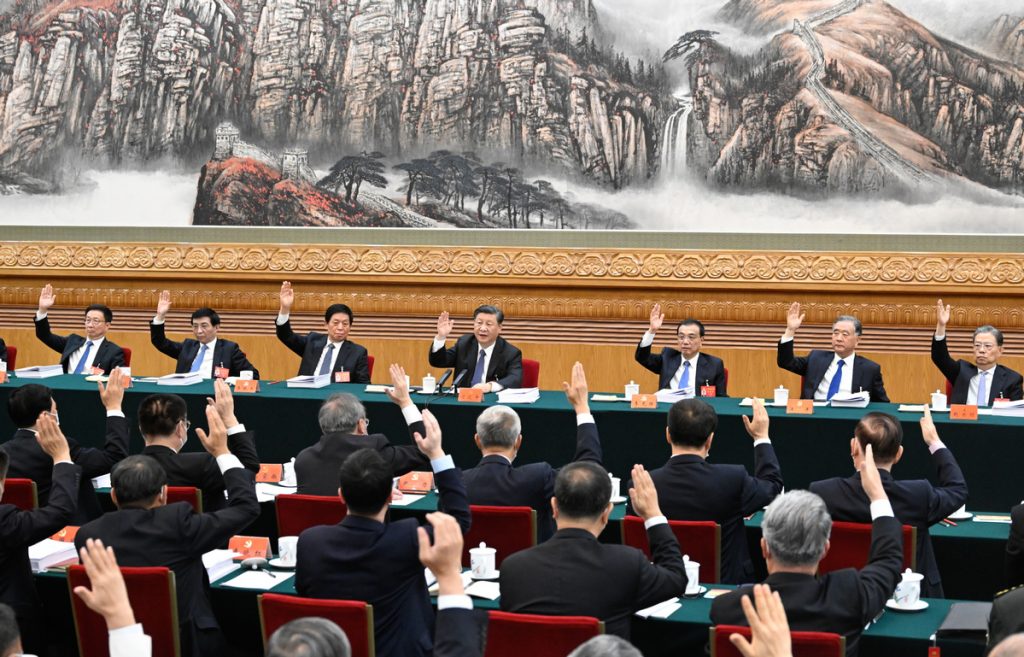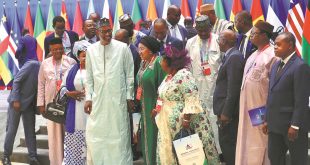Published: October 20,2022
By Gerald Mbanda

The 20th Communist Party of China (CPC) Congresswhich began on October 16, is very significant to China as a country in such a way that the more than 2,000 delegates from all parts of the country take part in evaluating what the country has achieved in the past five years and as well be involved in the setting of new goals for another five years to come. This means that the delegates representing their constituents own the country’s development agenda rather than being imposed by a few policy makers. This is a good example of all inclusive participatory and people centred governance. The world can learn lessons from China’s experience of involving citizens in the development process making priority issues that will improve the well-being of all Chinese citizens.
China is a single country with the largest population in the world of 1.4billion people. The country has been stable politically mainly due to the leadership that has put forward the unity of all Chinese ethnic groups. Although western countries attempt to discredit China, the reality remains that it is better governed and stable. The attempts only remain as politicking and propaganda aimed at tarnishing the image of China. On Monday, Xi called on Chinese people of all ethnic groups to stay as united as “a piece of hard steel” under the leadership of the CPC and pull together with one mind to power the giant ship of national rejuvenation through the wind and waves to reach its destination.”Unity, is key to the development of any country, and China provides a good lesson to the world.
Xi report to the 20th CPC National Congress reflected actionable achievements in the last five years. The CPC achieved the first centenary goal of “Xiaokang,” a moderately prosperous country in all respects, in 2021. Extreme poverty was eradicated ahead of scheduled time, after miraculously lifting hundreds of millions of Chinese people out of poverty. Proper planning, putting into action and achieving results on planned time is still a challenge to many countries in the world. On the issue of poverty alleviation, most countries in the global south are still struggling with extreme poverty. These countries have a lot to learn from China, by asking the question, how did China do it? Why did China succeed where many other countries have failed or lagged behind? These are critical questions that developing countries must ask themselves. Partnering with China in poverty alleviation strategies should not be an option but a necessity since China’s development philosophy is hinged on shared prosperity for all mankind.
China took a global leading role in the fight against COVID-19. The country was able to significantly contain the spread of the pandemic within China, but also went beyond to share with other countries the much needed vaccines and expertise in the war against the deadly virus. The COVID-19 experience showed the world that the rich and poor can be equally affected by catastrophes like pandemics and effects of climate change. Secondly, it also showed that no one country could contain the COVID-19 in its borders without in other countries doing the same. The lesson to the world is that all countries rich or poor need each other and have to work together through bilateral and multilateral efforts to overcome global challenges.
The CPC foreign policy of non-interference, multilateralism, peaceful coexistence, and advocacy for rule based order has made the country a beacon of peace in the world. China is a super power today, using its military strength for global peace and security rather than bulldozing weaker nations. China is the second largest contributor to both peacekeeping assessment and UN membership fees as well as the largest troop-contributing country among the permanent members of the UN Security Council with over 40,000 soldiers deployed on 25 missions globally. The world can learn from China to make peace a prerequisite for human development rather than war that destroys both human lives and development.
Gerald Mbanda is a Researcher and publisher on China and Africa.
For comments or opinion write to us on info@africachinareview.com
 Africa -China Review Africa -China Cooperation and Transformation
Africa -China Review Africa -China Cooperation and Transformation
